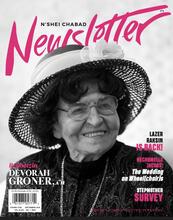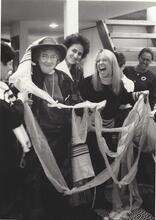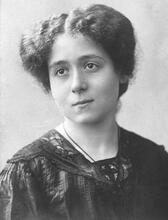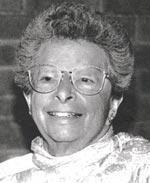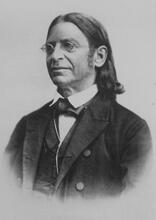Rivke Bas Me’ir Tiktiner
Rivke bas Me’ir Tiktiner, a preacher and teacher for women, was the first woman author of a Yiddish book, the moral homiletic Meineket Rivkah (Meinekes Rivke, Rebekah’s Nurse, 1609). In the book, which comprised thirty-six folios, Rivah bas Me’ir formulated the ideal of a religious woman and her social circumstances within the confines of her domestic world. Rivke bas Me’ir’s literary talents are reflected in the stringent composition, precise wording, and richly varied presentations of exegetic-homiletic passages, narratives, and moral teaching, as well as in real or fictitious accounts of personal experience. Her self-awareness as a female scholar constitutes her claim to fame.
Background
Rivke bas Me’ir Tiktiner, a preacher and teacher for women, was the first woman author of a Yiddish book, the moral homiletic Meineket Rivkah (Meinekes Rivke, Rebekah’s Nurse, 1609). The date and place of her birth is unknown. The inscription on her tombstone in the old Jewish cemetery of Prague names her father as Moreinu harav rabbi (our master, teacher, rabbi) Me’ir Tikotin. From this one may deduce that he came from Tykocin, near Bialystok, in Poland (the posthumous title page of her work uses Tiktiner, the more common form among Jews), that he was learned, and that he may have served as a rabbi. His daughter may have attained her knowledge of Hebrew and rabbinic literature under his tutelage. What is evident from an entry in the Sefer Hazkarot (Sefer Hazkarat Neshamot, or Memorbuch) of the Altneuschul is that she spent at least the last years of her life in Prague, where she died, greatly accomplished, on April 13, 1605. There is no evidence of her having any children.
Since her husband, who is mentioned in the Memorbuch, probably did not officially serve as a rabbi, it is clear that the titles rabbanit (teacher) and darshanit ve-rabbanit (preacher and teacher) were not simply honorary titles but reflected her activity in the Jewish community of Prague and perhaps also elsewhere. Her tombstone and the Memorbuch both mention that “she preached day and night to women in every pious community.” These activities clearly went beyond the usual duties of the Ashkenazi firzogerin (prayer leader), who translated prayers for women in the synagogue, explained the liturgy and prayed, and sang with them. This is evidenced by her work, Meineket Rivkah, the content and style of which reflect the moral instruction, sermons, and comments she presented to women. The book was published posthumously in Prague in 1609; a second edition was published in Cracow in 1618. Thus Meineket Rivkah, which was composed about a century before Glückel of Hameln started to write her memoirs, is clearly the first book by a Jewish woman. Some indication as to the way it was received even up to the eighteenth century may be gained both from its going into a second edition and from a reference to it in the Hebrew and Yiddish book of morals, Meshiv Hema— CustomMinhagim Eshet Hayil (Frankfurt am Main, 1715) by Isaac ben Berl Zoref of Mikulov (Nikolsburg in Moravia).
Meineket Rivkah
The existence of Meineket Rivkah became known through a mention of it in the commentary on Lit. "teaching," "study," or "learning." A compilation of the commentary and discussions of the amora'im on the Mishnah. When not specified, "Talmud" refers to the Babylonian Talmud.Talmud Suspected adulteressSotah (1674) by the Christian Hebraist Johann Christoph Wagenseil (1633–1705) and the Latin dissertation by J.K Lufft (1719), “The Polish Rebecca: On the Rare Example of a Woman Scholar of the Jewish People.” However, the book itself disappeared until the late twentieth century. In addition, she wrote a Yiddish Simkhes toyre lid (Song for Lit. "rejoicing of the Torah." Holiday held on the final day of Sukkot to celebrate the completing (and recommencing) of the annual cycle of the reading of the Torah (Pentateuch), which is divided into portions one of which is read every Sabbath throughout the year.Simhat Torah, which appeared in two considerably varied versions without any mention of place or dates of publication. There is no proof whatever for the notion that she translated Hovot ha-Levavot by Bahya ibn Paquda into Yiddish.
The Hebrew preface to Meineket Rivkah consists of a rhymed Hebrew liturgical poempiyyut in which the author confidently describes her reason for composing a Yiddish book of morals: “I found a well … and drank from it, but was still thirsty. I said in my heart, then I will go there and bring to my neighbors, both men and women, enough to drink throughout their entire lives.” In other words, since she had already read and studied books that she found inadequate for her own needs and those of other women and men, she now needed herself to compose a book that would serve them as reading matter throughout their lives.
In the book, which comprised thirty-six folios, Rivah bas Me’ir formulated the ideal of a religious woman and her social circumstances within the confines of her domestic world. The opening chapter, which serves as an introduction, presents a practical ethic in which the author systematically describes as hokhmat ha-guf (wisdom of the body) the ideal practices of health and correct nutrition, as well as the A biblical or rabbinic commandment; also, a good deed.mitzvot related to the body such as Menstruation; the menstruant woman; ritual status of the menstruant woman.niddah and The Jewish dietary laws delineating the permissible types of food and methods of their preparation.kashrut, which are not itemized. At the same time, she refers to general ideals of social behavior (lying or gossiping) and religious-moral mitzvot (e.g. the woman’s responsibility for the pious behavior of her husband, children and servants; her obligation to attend the sermons) as hokhmat ha-neshamah (wisdom of the soul).
Each of the subsequent six chapters deals with contemporary ideals of behavior and social practices appropriate to a married woman in her dealings with one of her specific social relationships: with her parents, her husband, her parents-in-law, her children, her daughter-in-law, as well as her domestic servants and house guests. These ideals of behavior do not merely reproduce traditional rabbinical discourse, but relate to the reality of life of the sixteenth century and paint a vivid picture of the domestic life of middle-class Jews of European origin and their descendants, including most of North and South American Jewry.Ashkenazi Jewish women. The book is addressed to “young, inexperienced women” who, like orphans, still require instruction and exhortation. However, she repeatedly praises the numerous “experienced and righteous” women who, due to their knowledge and piety, need no further instruction. This declaration stands in direct contrast with many contemporaneous Yiddish books of morals (sifrey musar) such as Sefer Middot (Isny 1542) or Brant Shpigl (The Burning Mirror, Cracow 1596) by Moses Ben Henokh Altschul (c. 1546–1633), which constantly criticized women’s inadequate knowledge and insight.
A pronounced characteristic of Meineket Rivkah is its homiletic nature, which indicates that Rivke bas Me’ir possessed a scholarship rare among women of her time: in extended exegetic-homiletic passages she cites an enormous number of Hebrew biblical quotations, Yiddish narratives based on Talmudic and Midrashic aggadot, and quotations from Hebrew and—only occasionally—Yiddish ethical literature. She employs numerous concepts and methods from rabbinical exegesis, frequently presenting appropriate independent interpretations and examples. In this way, the author arrives at a positive definition of womanhood, interpreting the outcome of Eve’s sin (menstrual pains, pregnancy, birthing, and child raising) not as a “curse,” as which it was portrayed in rabbinical and contemporary ethical literature, but as a divine “punishment,” the acceptance of which earns women great respect and reward in the next world.
Rivke bas Me’ir’s literary talents are reflected in the stringent composition, precise wording, and richly varied presentations of exegetic-homiletic passages, narratives, and moral teaching, as well as in real or fictitious accounts of personal experience. Her self-awareness as a female scholar constitutes her claim to fame.
Assaf, Simha. Sources for the History of Jewish Education, vol. 4 (Hebrew). Tel Aviv: 195, 45–46 [the first modern hint as to the existence of the text in a library]
Karpeles, Gustav. Geschichte der jüdischen Literatur. Vol. 2. Berlin: 1909, 332–333.
Kay, Devra. editor and translator. Seyder Tkhines: The Forgotten Book of Common Prayer for Jewish Women. Philadelphia: 2004, 221–223 (Contains an English translation of Simkhes toyre lid.)
Kayserling, Meyer. Die jüdischen Frauen in der Geschichte, Literature und Kunst. Leipzig: 1879, Hildesheim: 1991, 152.
Levine, Yael. Simkhes toyre lid le-Rivkah Tiktiner (Hebrew). Jerusalem: 2005.
Lufft, Johann Konrad. De Rebecca Polona. Eruditarum in Gente Judaica Foeminarum Rariori Exemplo. Altdorf: 1719 [Latin dissertation and first scholarly work on Rivke bas Me’ir].
Muneles, Otto. Epitaphs from the Ancient Jewish Cemetery of Prague (Hebrew). Jerusalem: 1988, 161 [contains inscription of her gravestone].
von Rohden, Frauke, ed., Rivkah bat Me’ir Tikotin: Meineket Rivkah. Introduction, Text and Translation. Philadelphia: forthcoming; Shmeruk, Chone. “The First Jewish Female Author in Poland: Rebekah Tiktiner and her Works” (Hebrew). Gal-Ed 27–28 (1978): 13–23.
von Rohden, Frauke. Hebrew Literature in Poland (Hebrew). Jerusalem: 1981, 56–62; 65–69, 101–102.
Taitz, Emily, Sondra Henry, and Cheryl Tallan. The JPS Guide to Jewish Women, 600 B.C.E.–1900 B.C.E. Philadelphia: 2003, 147–149.
Wagenseil, Johann Christoph. Sota, hoc est, liber Mischnicus de uxore adulterii suspecta … Accedunt correctiones Lipmannianae. Altdorf: 1674 [first mention of Rivke bas Me’ir’s book in a scholarly work].
Wunder, Me’ir. The Crown of Rivkah: Four Women’s Tehinot with Translation into Hebrew and the Moralbook Meineket Rivkah (Hebrew). Jerusalem: 1992, 76–147 [contains a facsimile of the incomplete Cracow printing, 1618].
Zinberg, Israel. A History of Jewish Literature. Vol. 7: Old Yiddish Literature from its Origins to the Haskalah Period. New York: 1975, 241–242.

